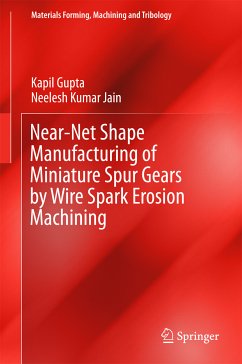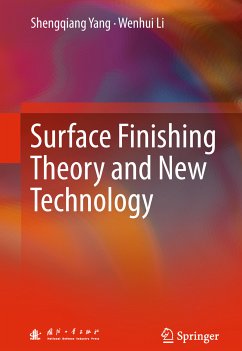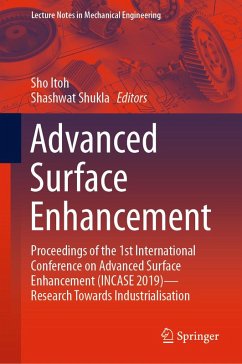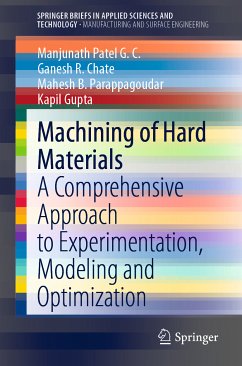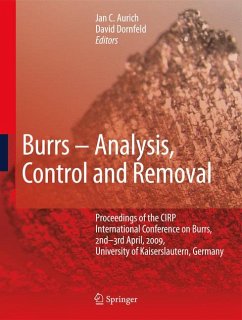
Surface Integrity in Machining (eBook, PDF)
Versandkostenfrei!
Sofort per Download lieferbar
72,95 €
inkl. MwSt.
Weitere Ausgaben:

PAYBACK Punkte
36 °P sammeln!
"Surface Integrity in Machining" describes the fundamentals and recent advances in the study of surface integrity in machining processes."Surface Integrity in Machining" gathers together research from international experts in the field. Topics covered include: the definition of surface integrity and its importance in functional performance; surface topography characterization and evaluation; microstructure modification and the mechanical properties of subsurface layers; residual stresses; surface integrity characterization methods; and surface integrity aspects in machining processes.A useful ...
"Surface Integrity in Machining" describes the fundamentals and recent advances in the study of surface integrity in machining processes.
"Surface Integrity in Machining" gathers together research from international experts in the field. Topics covered include: the definition of surface integrity and its importance in functional performance; surface topography characterization and evaluation; microstructure modification and the mechanical properties of subsurface layers; residual stresses; surface integrity characterization methods; and surface integrity aspects in machining processes.
A useful reference for researchers in tribology and materials, mechanical and materials engineers, and machining professionals, "Surface Integrity in Machining" can be also used as a textbook by advanced undergraduate and postgraduate students.
"Surface Integrity in Machining" gathers together research from international experts in the field. Topics covered include: the definition of surface integrity and its importance in functional performance; surface topography characterization and evaluation; microstructure modification and the mechanical properties of subsurface layers; residual stresses; surface integrity characterization methods; and surface integrity aspects in machining processes.
A useful reference for researchers in tribology and materials, mechanical and materials engineers, and machining professionals, "Surface Integrity in Machining" can be also used as a textbook by advanced undergraduate and postgraduate students.
Dieser Download kann aus rechtlichen Gründen nur mit Rechnungsadresse in A, B, BG, CY, CZ, D, DK, EW, E, FIN, F, GR, HR, H, IRL, I, LT, L, LR, M, NL, PL, P, R, S, SLO, SK ausgeliefert werden.







